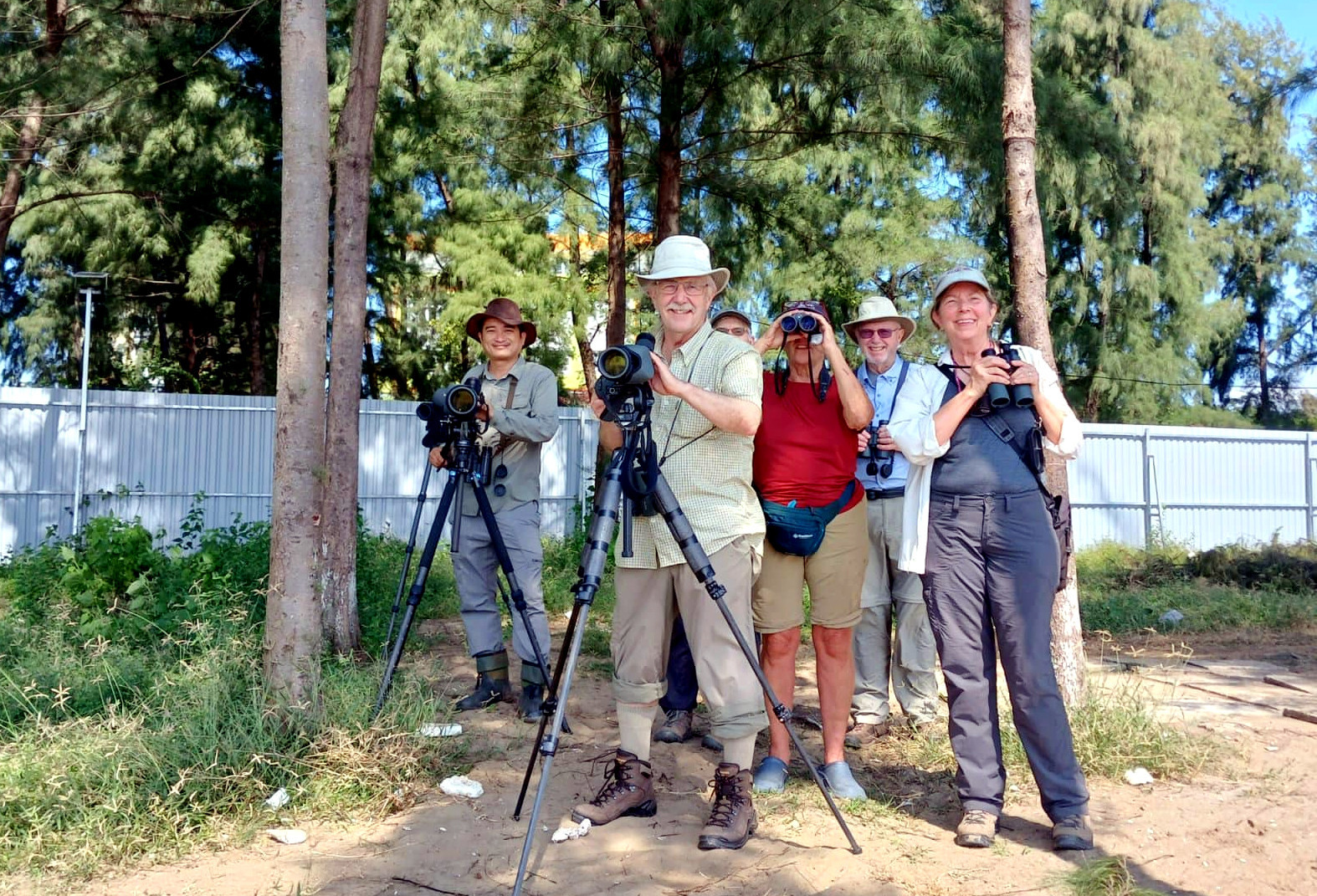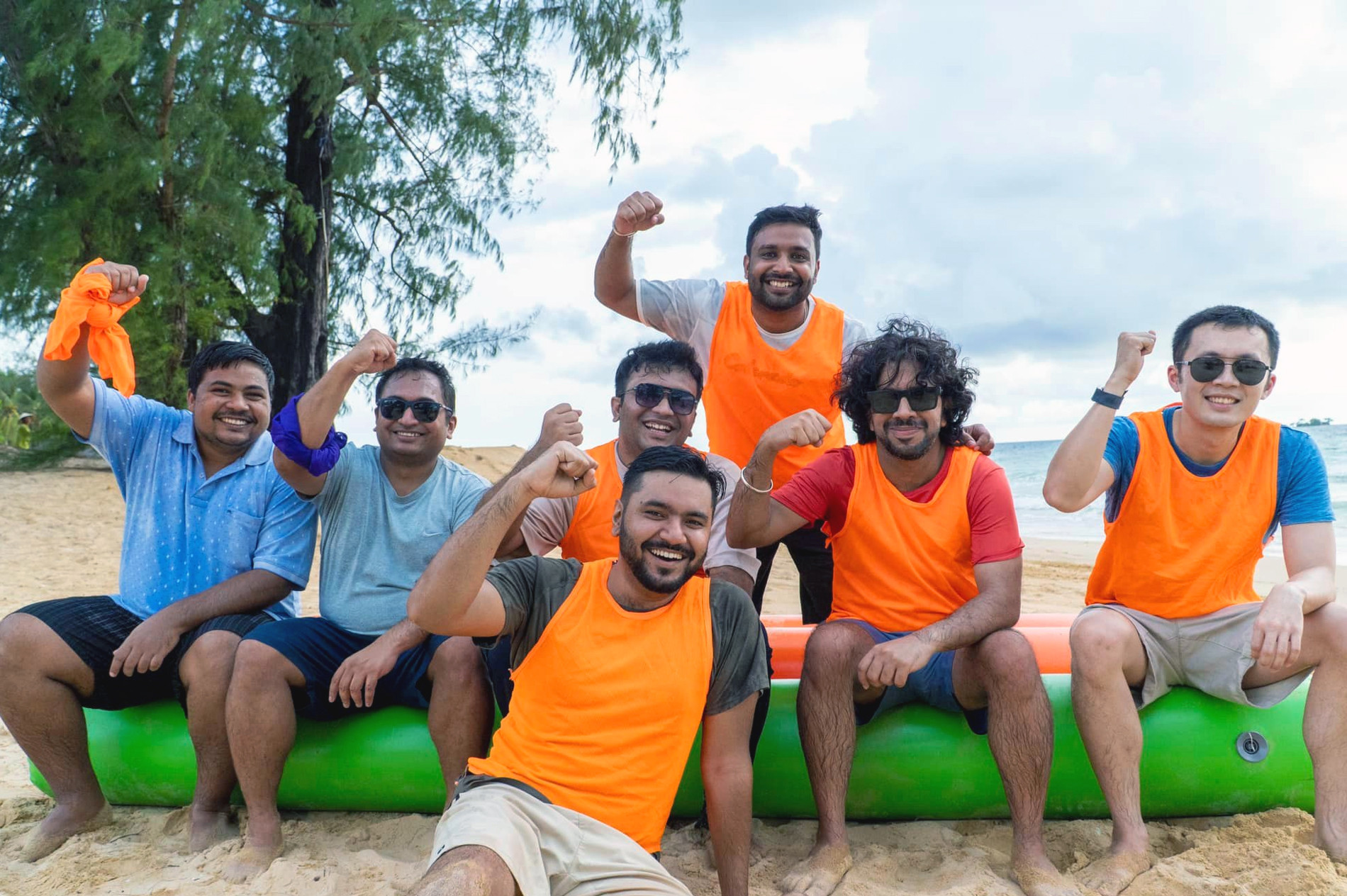
Tourists' emotions determine the value of tourism products
In the first nine months of 2024, Vietnam welcomed 12.7 million international visitors, a sharp 43% increase compared to the same period last year.
However, the key questions remain: how many of these visitors were high-end tourists, from which markets, and have their spending levels increased compared to pre-COVID times in 2019?
How can Vietnam identify and attract this high-spending demographic? These issues were raised during the "What Products for High-End Tourists to Vietnam" seminar organized by Tuoi Tre on October 11.
Many travel companies have already introduced unique and distinctive products to attract affluent travelers. Among them, Wildtour's bird-watching tours stand out as a prime example of how tourists are willing to spend thousands of dollars for this experience.
Nguyen Hoai Bao, Director of Wildtour, explained that 45 million people in the U.S. go on bird-watching trips, collectively spending around $40 billion per year.
In contrast, Vietnam's total tourism revenue in 2023 was only $27 billion. In Europe, nearly 20 million people participate in bird-watching tours, spending roughly $1 billion annually. This number is rapidly increasing in Asia, particularly in Japan, China, and Taiwan.
Vietnam ranks third in Southeast Asia and 15th-16th globally in terms of bird species diversity, yet it lags behind countries like Thailand and Malaysia, which have developed bird-watching tourism for 30-40 years.
In Europe, this type of tourism has been established for over 100 years. Vietnam's first bird-watching tours began in the 1990s, with little promotion since.
Moreover, a lack of professional guides, inadequate infrastructure at national parks, and bureaucratic challenges such as security and paperwork have deterred companies from organizing tours, fearing that access might be denied.
Additionally, issues like insufficient nature conservation and bird poaching have hindered the development of bird-watching tourism in Vietnam.
Culinary tourism and high-end experiences
Another key aspect of high-end tourism is cuisine. At the seminar, culinary artisan Pham Anh Tuyet noted that Vietnam has yet to fully recognize the importance of food in tourism, while other countries, like South Korea, excel in this area.
"For high-end tourists, the most important factors in cuisine are personalization, service standards, and safe preparation methods that allow guests to enjoy their meals with peace of mind," Tuyet emphasized.
Liam Cordingly, Chief Economist at Oxford Economics, presented survey results showing that potential tourists are 2.5 times more likely to choose destinations offering premium culinary experiences over standard ones. These tourists are also willing to spend an additional $250 per person per day.
Wildtour Director Nguyen Hoai Bao highlighted that high-end tourists typically have high incomes, seek unique experiences, demand personalized services, and are willing to pay premium prices for quality products.

These tourists are often drawn to specialized tourism services such as scuba diving, golf, MICE (meetings, incentives, conferences, and exhibitions) tourism, and cruise tourism. Some also prefer personalized travel experiences like wildlife exploration and cave expeditions.
However, according to Nguyen Quoc Ky, Chairman of Vietravel Holding, the essence of a high-end tourism product lies in the lasting impression it leaves on guests: a memorable trip, a deep, unforgettable experience, or a surprising and enriching moment. These elements are far more important than a 5-star or 6-star hotel.
"The emotions of the tourists determine whether the product is truly high-end or not," Ky stressed.
Recognizing and attracting high-end tourists
Vu Quoc Tri, Secretary-General of the Vietnam Tourism Association, cited data from 2019 showing that the average daily spending of international tourists in Vietnam was over $132, lower than Thailand's $180.
Vietnam's tourism development strategy aims to generate $77-80 billion in revenue by 2025, contributing 12-14% of GDP. Tri emphasized that to achieve this, it is necessary to increase both the volume and spending of international tourists.
Ngo Thi Huong, Deputy General Director of Sales and Marketing at Vinpearl, noted that to attract high-end tourists, products must be "tailored" to different customer segments, encouraging them to spend more.
Huong proposed developing products focused on mental wellness, green tourism, and sustainable tourism. For example, green tourism and golf have proven to be highly attractive to South Korean tourists. They enjoy Vietnam's golf courses, natural environment, and cuisine, often staying for extended periods and bringing their families.
Deputy Minister of Culture, Sports, and Tourism Ho An Phong emphasized that the recovery in Vietnam's international visitor numbers is significant. However, he noted that quality should take precedence over quantity. Increasing the quality of tourists—those who spend more, stay longer, and align with Vietnam's cultural values—should be prioritized to drive the development of other economic sectors.
Nguyen Trung Khanh, Director of the Vietnam National Administration of Tourism, stated that Vietnam aims to position itself as a high-quality tourism destination, with a focus on attracting tourists with high spending power.
To do so, Khanh suggested conducting market research to identify the needs of high-end tourists, improving infrastructure, and focusing on unique, original, and personalized experiences. Vietnam should also ensure a refined service approach that harmonizes cultural experiences with nature and the environment.
Additionally, Khanh emphasized the need to enhance service delivery processes to ensure professionalism and high quality, creating a complete experience for tourists. Marketing efforts should focus on positioning Vietnam as a premium destination.
Manh Ha